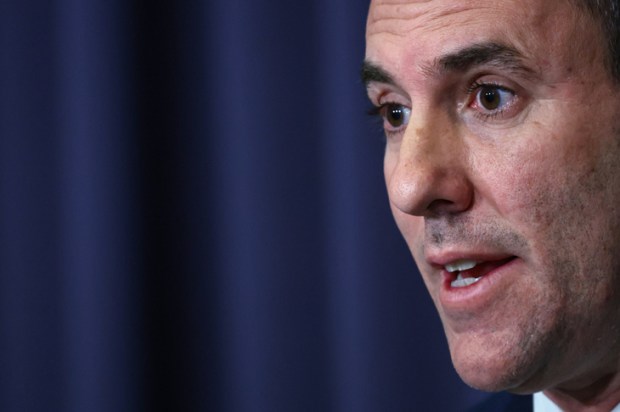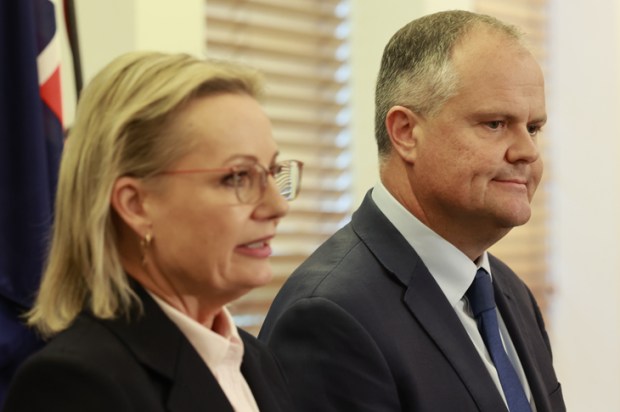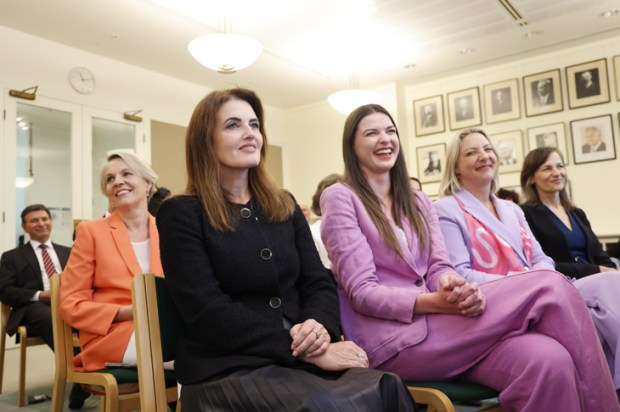Here at the Joseph Stalin Centre for Law Reform – and before we go any further, we do not want any pathetic jokes about our eponymous founder – the issue we have been tackling is how to reduce the time taken up by criminal trials. Our founder should be immortalised for eliminating the entire time taken up by trials, simply by not having any except show trials.
We can now proudly say that in most jurisdictions, the length and complexity of trials have been largely eliminated to the benefit of all concerned by means of a reform that our Institute has developed and which has now been widely adopted. That reform is the new defence that ‘this case has gone on for too long’ and should be brought to an immediate end, no matter what the merits of keeping it going.
The most potent example of how this defence has been applied is in the case of Julian Assange. As you know, this hero was charged with a long series of offences relating to the release of secret material that the United States claimed endangered its national security. When charged, Assange took refuge in the Ecuadorean embassy in London from where he instituted one appeal after another and gradually wore down the courts and the prosecution. At that point, it occurred to the Australian Prime Minister, Anthony Albanese, that there was a new point that everyone else had overlooked, namely that ‘this case has gone on for too long’. Before you could say ‘habeas corpus’, everyone could see its good sense: forget about the crimes, breaches of security, exposure of innocent people and making the punishment fit the crime. Just let him go.
Thus, reason prevailed due to the statesmanlike intervention of Mr Albanese. Even Joe Biden fell into line, although he no doubt thought it was Albanese who had gone on about it for too long, especially with the baleful spectre of Kevin Rudd in the background. Assange was allowed to plead guilty to a minor offence and was set free. The only penalty he had to pay was being locked in a private jet with Kevin Rudd for the long trip home. Everyone was bored. Assange had worn them out and they just gave up.
So, our guiding principle for criminals is clear, bore everyone to death for long enough and you will walk free. The crime itself, if there is one, will just be forgotten.
It did not take long for Mr Biden to pardon his own son, Hunter, for crimes relating to drugs and his gun licence. That case had also gone on for too long, so Hunter went free. Before long, our momentous reform was applied to the perpetrators of the 9/11 attack on the World Trade Centre. That case had also gone on for too long. Had the United States gone ahead with the prosecution, the criminals would have received the electric chair and some would say they deserved it. But everything had to be put into perspective, and the case had gone on too long for comfort.
The government of Victoria was equally quick off the mark to implement this new-found principle. The State had been wracked by the Lawyer X scandal. Ms Nicola Gobbo, a criminal barrister, was nobbled by the police and used as an informant on underworld skullduggery perpetrated by her own clients which she then leaked to the police. It was a monumental conspiracy by the government and the police. But with unparalleled chutzpa, and as casually as borrowing another $50 billion, the Victorian Premier announced, yes, the case had gone on for too long, and no one would be allowed to sue the government, or the police.
Soon, other crimes were dropped because those cases had also gone on for too long. With tears in his eyes, Mr Albanese announced that the cases against the five remaining Australian prisoners in Indonesia, those who had not been hanged as they should have been for trying to smuggle heroin into Australia, should also be dropped. Why? Because their cases had gone on for too long.
Then, a member of the Australian ice hockey team at the Olympic Games was arrested in Paris while trying to buy cocaine on the street. After being kept in a police cell overnight, he was released by the authorities after paying a small fine, promising not to do it again or at least not to be caught, and after issuing a strained apology. This also was a case that had gone on too long, at least overnight in fact, and the poor miscreant was promptly returned to the bosom of his family and future Olympic glory.
While the principle was taking its formative steps in crime, it also started to be applied in cases of civil debt. The United States decided to forgo the student debt of its college students at a cost of billions of dollars. Some narrow-minded extremists say that forgiving the debt is an unfair burden on those who did not go to college, in other words the taxpayers, but no matter: the debt had been hanging around for too long. Back to Australia, where we note that student debt there will also be forgiven; the money has been owed for too long and with too much interest accruing.
Our great reforms have thus been greeted with glee by criminals and debtors all over the world. Crimes are negotiable and debts can be forgiven. Even the Israeli government can say, after almost winning its war with Hamas, after all its cost, its hostages still in captivity and Hamas back in business and waving guns around like lunatics, that this war has gone on for too long and should stop. The message has become clear: wait until the case – or the war – has gone on for too long, the community has lost its staying power, the authorities are bored and we should all just forget about it. A true reform and one for which our modest Institute is justly proud.
Got something to add? Join the discussion and comment below.
You might disagree with half of it, but you’ll enjoy reading all of it. Try your first month for free, then just $2 a week for the remainder of your first year.














